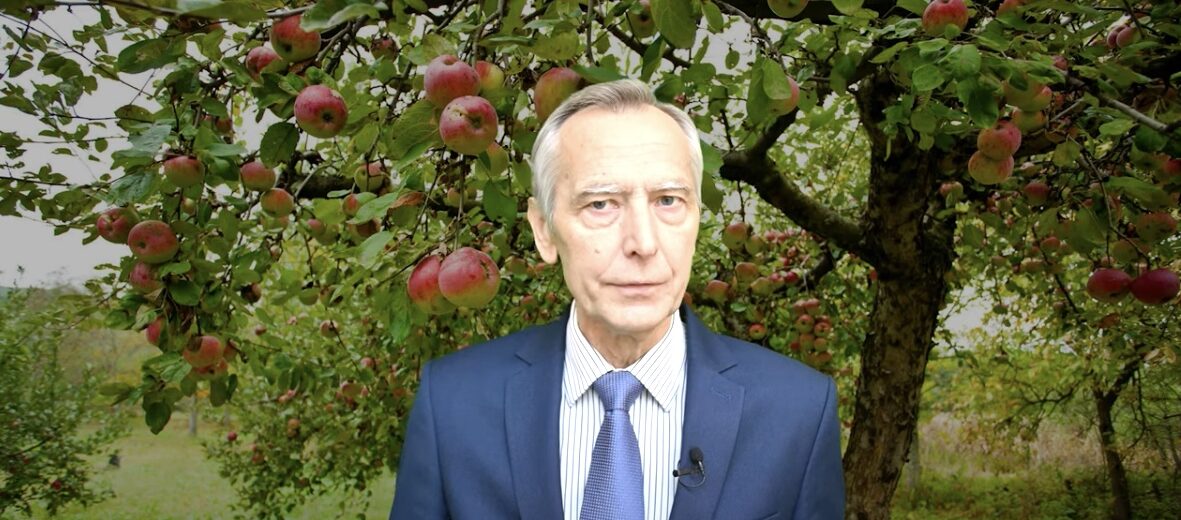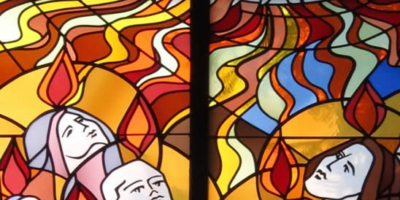In this month’s Schuman Talk, Slovakian politician Jan Figel’ tells about the harsh reality of growing up under an atheistic communism in Czechoslovakia, and of the role his Christian faith played in bringing hope for freedom and peace.
He was named after his uncle, who as a 26-year-old teacher was taken by Secret Service agents to an unknown fate. As a young child he saw the Soviet tanks invade his land in 1968, brutally suppressing the ‘Prague Spring’ when Alexander Dubcek had tried to introduce ‘socialism with a human face’ – foreshadowing Russia’s current invasion of Ukraine. Two decades later, he witnessed enormous changes in his country when the Velvet Revolution overthrew the old regime through the soft powers of truth and justice. After the Czech Republic and Slovakia separated through the Velvet Divorce late in 1992, both countries applied to join the European Union. Figel’, from the eastern part of Slovakia, led his country’s accession negotiations with the EU, and served as European Commissioner in several departments between 2004 and 2009, in both the Prodi and Barroso Commissions.
After an interim phase as deputy prime minister of Slovakia, Figel’ was appointed Special Envoy for the promotion of freedom of religion outside the EU by the European Commission President Jean-Claude Juncker.
Roots
At last month’s State of the Europe Forum in Stockholm, Figel’ spoke to forum participants via video about the roots of freedom and peace, as follows.
“Freedom and peace are very important human values. Like all real values, they require certain ongoing effort, vigilance, and our responsibility. Freedom and peace have their roots. They’re rooted in virtues of truth and justice.
“Tasty apples are fruits of a sound tree with vital living and feeding roots. These invisible roots remain underground, but for the visible and healthy fruits, they are indispensable. And it all starts with a small seed and then a young, fragile plant of a little tree. Therefore, desire for healthy fruits presupposes our care about roots and tree as well.
“Similarly, freedom and peace are very needed and important fruits of truth and justice. Freedom is very popular phenomenon. But we should remember that freedom is a beautiful but vulnerable daughter of a wise and brave mother called truth. Because truth liberates us from illusions, lies, propaganda, or demagogy. Truth reveals that we all are born free and equal in dignity and rights.
“Respect of fundamental human rights of all is a core of modern justice. But we should remember that rights are possible only in connection with duties and obligations. Human dignity is a source, a foundational principle, of my rights as well as my duties. I can claim my rights, but I must remember also my duties as husband, as father, as citizen towards the other and towards the community I live in, starting with my family.
“Peace is a fruit of justice. Therefore, if we desire peace in 21st century, we must do more for justice in our society and among nations.
Silver and gold
“Roots of truth and justice are represented by dignity of each human person with his or her inalienable and universal rights. Culture of human dignity for all requires respect and implementation of two ancient and justified ethical principles: the Silver ethical principle and the Golden one.
“The Silver ethical principle says, don’t do unto others what you don’t want others to do unto you. And the Golden ethical principle invites us in a positive way do unto others what you want others to do unto you. These principles confirm equal dignity and promote justice for all. When the culture of human dignity prevails, we may enjoy its good and tasty fruits, freedom and peace for all.”
In this week’s Schuman Talk, Figel’ tells about the annus mirabilis when communism collapsed and dreams of peace and freedom began to be fulfilled, a story that can never be told enough to a younger generation tempted to take freedom and peace for granted. He candidly tells of Slovakia’s failures to pursue openness and integrity prior to 1998 when a change of government replaced corrupt leadership. This enabled the EU accession process to begin, with Figel’ as chief negotiator.
He tells also about the inspiration Robert Schuman has been to his political career and personal relationships. If we don’t know the basis on which European integration has been built, he asks, how can we successfully continue to enlarge?
His appointment as Special Envoy to promote religious freedom outside the EU was in response to the mass atrocities in Syria and Iraq committed by ISIS terrorists against religious and ethnic minorities. Freedom of religion is a precondition for a more humans and peaceful twenty-first century. The EU should do more for freedom of religion both within and outside the EU, Figel’ believes, for a strong Europe is a just Europe.
You can hear his story, beginning this Friday at 6pm CET.

Till next week,



